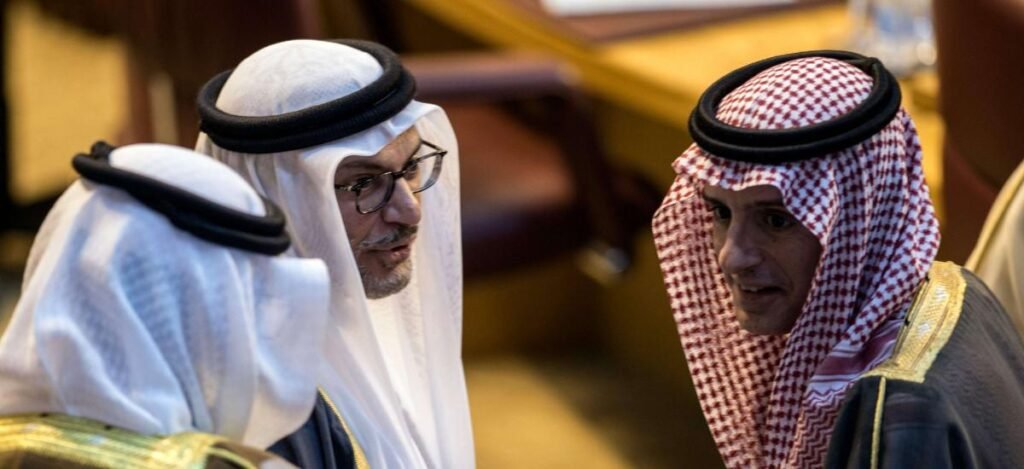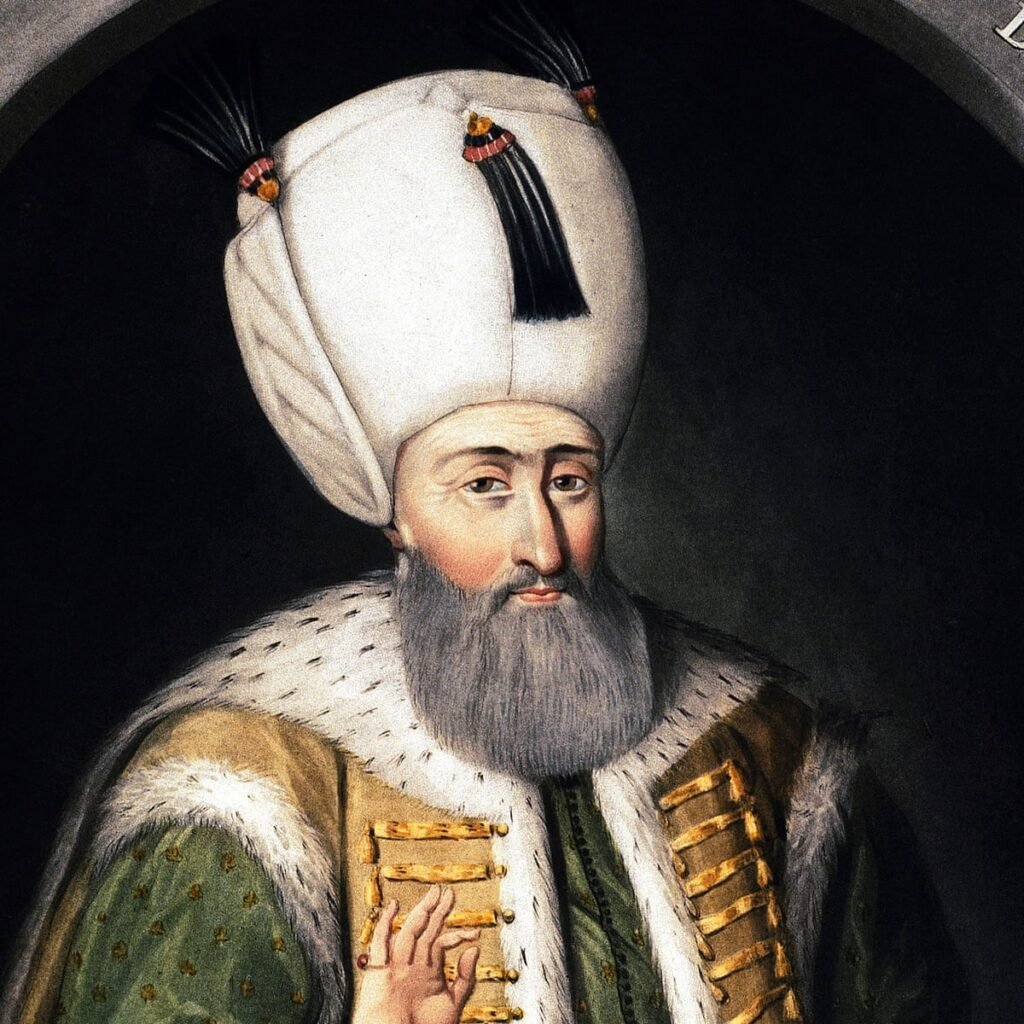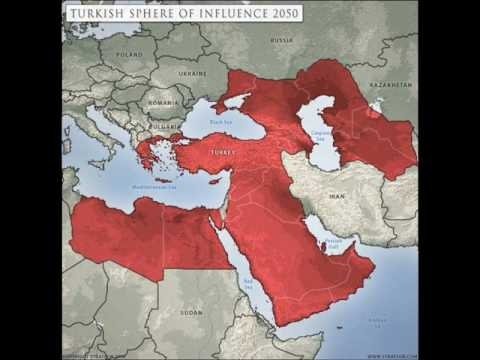Arab world is distancing itself from its Ottoman Past. Saudi Arabia has banned all imports from Turkey, renamed a street bearing name of the Ottoman Sultan.
With Turkish President Erdogan openly advocating restoring the past glory by re-establishing the Ottoman Empire, Saudi Arabia clearly understands what Ottoman Empire meant for Saudis. In view of the recent events, Saudi Arabia is preparing itself to become a stronger nation in the event Turkey directs its Terrorist forces to mow down the Saudi Kingdom.
Saudi Arabia has banned all imports of Turkish goods from Thursday, 1-October 2020. The unofficial restrictions on some goods from Turkey were already in place for months, but the new measure would amount to a more formalised and wider reaching ban on the Turkish imports.
Last year, Saudi Arabia stopped the import of textiles and perishable food from Turkey, leaving hundreds of Turkish trucks carrying these goods stranded on Saudi Arabia’s borders. The trucks were only allowed in after the intervention of Turkish diplomats and no further imports of these items were permitted.
Goods with “Made in Turkey” stamp will be banned from entering Saudi Arabia from 1 October.
Related Article Belligerent Imperialist Turkey Threatens to Invade whole of Cyprus
Arab world is distancing itself from its Ottoman past
Anti-Turkish sentiments can be seen on the streets in Saudi Arabia. Saudi Government is also taking some concrete steps against Turkey.

A sign bearing the name of the Ottoman Sultan, Suleiman the Magnificent was removed from one of the main streets of the kingdom’s capital, Riyadh.
The decision to remove the road sign was taken by Riyadh municipality, at the behest of the Saudi administration under its ruler, Mohammed bin Salman.
The move was widely hailed in pro-regime media and Twitter accounts as an effort to expunge ‘colonial’ remnants from Saudi Arabian streets.

But the decision to change the name of the Riyadh street is just the latest in a series of attempts by Saudi Arabia and its allies to correct the version of the Ottoman history that was taught in schools for almost a century.
Contrary to what generations of GCC citizens are taught at schools and universities, the new correct narrative seeks to portray the Ottoman reign in the Arab world as an imperial occupation rather than a pan-Islamic caliphate.
Related Article Failed attempt by Turkey to become Leader of Muslim Ummah
Although the Ottomans presided over one of history’s most powerful empires and controlled much of the territory that form today’s Saudi Arabia, the signboard carrying the name of Suleiman the Magnificent has nothing to do with Turkey’s colonial legacy in Saudi Arabia.
Related Article Neo-Ottoman Dream – End Of Turkey And Erdogan
Several Ottoman monuments and structures in and around Mecca were demolished by Saudi Arabia in the past in the name of renovation and urban development. The street name was a reminder of Ottoman occupation of Saudi Arabia.
The street name reflected a period of Turkey’s Ottoman rulers as oppressive imperial master, and the Arab countries as their colonies in the post-Ottoman period, when the Saudi Arabia was ruled by the uncles of the current crown prince.
Saudi authorities have the right to change the name of any street inside their territory, and there are several streets, mosques, squares and other landmarks in the Arab world which were named and renamed according by the rulers.
But this decision was mooted by the Saudi bloc’s need to correctly portray Turkey as an oppressive imperial master, and the Arab countries as their colonies.

Related Article Turkey Committing War Crimes: Uses Chemical Weapons on Civilian Kurds
The move is part of an ongoing campaign to correctly re-write the history. In 2019, Saudi Arabia’s Ministry of Education modified its history textbooks by calling the Ottoman reign in the Arab world an “occupation” instead of a “caliphate” as it was previously referred to. The new textbook accuses the Ottomans of dividing the Arab region and unleashing brutalities against the House of Saud. Egyptian religious authorities also changed their terminology from Ottoman “conquest” of Istanbul, to Ottoman “occupation”.
Related Article Turkish Hypocrisy: Do To Hagia Sophia, What They Complain To The World
In 2018, Emirati Foreign Minister Abdullah bin Zayed Al Nahyan reposted a comment that accused the early 20th century Ottoman commander Fahreddin Pasha of robbing and looting Medina. Turkey responded by officially changing the name of the street where the UAE embassy is located to “Fahreddin Pasha Street.”
The recent decision to remove the name of Suleiman the Magnificent was also immediately reciprocated, with Libya’s Tajoura Municipality naming one of the main roads in the town after the Ottoman Sultan.
Until 2011, history textbooks in schools and universities for all GCC countries wrongly taught children that the Ottoman Empire was an Islamic caliphate which contributed to the global expansion of Islamic culture and the flourishing of its civilization.
But the Arab Spring changed all the equations, with Erdogan’s endorsement of Egypt’s government led by the Muslim Brotherhood’s Mohammed Morsi, pitting Turkey against Gulf monarchies of Saudi Arabia and the United Arab Emirates. A need was felt to educate people in the arab world right from schools and universities the correct version of the history so that people know about the occupation of Ottomans and prepare themselves to prevent Turkish malicious designs to re-establish the Neo-Ottoman empire in future.

Diplomatic tension grew into a political confrontation while Turkey supported Qatar when it came under a blockade imposed by Saudi Arabia, UAE, Bahrain and Egypt. In March 2018, Prince Mohammad bin Salman went to the extent of describing Turkey as part of a “triangle of evil” alongside Iran and the Muslim Brotherhood.
The diplomatic row rose to a crescendo with the murder of Saudi journalist Jamal Khashoggi’s in the kingdom’s Istanbul consulate in October 2018. Turkey indicted six Saudi citizens for Khashoggi’s murder.
The kingdom and its allies are also unhappy with the Erdogan government’s intervention in Libya where the Turkish military has helped the Islamist Radical GNA government to fight the eastern democratic forces led by Head of the Libyan National Army (LNA) Field Marshal Khalifa Haftar, who is supported by two Saudi allies – the United Arab Emirates and Egypt – as well as Russia.
The eastern-based LNA, led by Khalifa Haftar and supported by Turkey’s regional rivals Egypt, Saudi Arabia and other Gulf states, has accused Turkey of funding and arming Islamist factions in Libya fighting on the side of the Tripoli-based GNA.
The Arab allies interpret Turkish military presence in Qatar after the blockade as well as the interventions in Syria and Libya as part of Erdogan’s expansionist ambition in the region, modelled on the erstwhile Ottoman empire.
Saudi Arabia’s invocation of Ottoman past will educate people in the short term about the brutalities of the Ottoman occupation and serve the purpose of waking up nationalistic sentiments at home. In the long term it will prepare the Arab world to fight against the Turkey’s Neo-Ottoman Imperialist tendencies.
With Turkey funding and arming Islamist Radical Terrorists in Syria, Libya and now in Azerbaijan, threatening Greece, Armenia and Cyprus, it is impossible to put the genie back in the bottle.
Some important pointers of this widening divide
In October 2014, Saudi Arabia successfully campaigned against a Turkish bid for non-permanent membership of the United Nations Security Council, due to Saudi opposition to the Turkish stance on the Muslim Brotherhood.
In 2016, Turkey accused UAE of supporting the 2016 Turkish coup d’état attempt.
Due to the 2017 Qatar diplomatic crisis, the relationship between Turkey and Saudi Arabia faces problems, with Turkey supporting Qatar against Saudi Arabia in the ongoing diplomatic dispute.
In May 2017, the UAE’s Ambassador to the United States, Yousef Al Otaiba described Turkey under Erdoğan as a “long-term threat” to both the UAE and the United States.
In August 2017, the UAE accused Turkey of “colonial and competitive behavior” by “trying to reduce the sovereignty of the Syrian state” through its military presence in Syria.
The UAE has provided support for the Kurdish-dominated Syrian Democratic Forces, which fought against Turkish troops in northern Syria.[16][17] Turkey has accused the UAE of also supporting the Kurdistan Workers’ Party in its conflict with the Turkish government.
In December 2017, the UAE’s foreign minister, Abdullah bin Zayed Al Nahyan, shared a tweet that claimed an Ottoman general had robbed Medina during Ottoman rule. Turkish President Recep Tayyip Erdogan responded by describing him as an “impertinent man” who was “spoiled by oil”. Emirati diplomat Anwar Gargash then stated, “The sectarian and partisan view is not an acceptable alternative, and the Arab world will not be led by Tehran or Ankara.”
World Pensions Council’s M. Nicolas J. Firzli has argued that the Turkish government has sought to use the crisis to its own advantage, by advancing an expansionist Neo-Ottoman agenda at the expense of the Gulf Cooperation Council:
Turkey and a resurgent Iran for their part are cynically using the festering crisis to advance a distinct agenda: rebuilding military and economic beachheads along the ‘eastern flank’ of the Arabian Peninsula from Oman to Southern Iraq, a part of the world from which they were forced out by the Royal Navy in 1917, precisely one hundred years ago. The local chess board is getting crowded with too many avid players, at a time when many British and American policy makers seem to have lost interest in that part of the world: this doesn’t bode well for the long-term stability of the MENA.
Saudi Arabia, in response, has threatened to impose sanctions against Turkey, and has conducted discussions with the UAE on the topic of curbing “Turkish expansionist policy”. In turn, Turkish President Recep Tayyip Erdoğan accused Saudi Arabia of being non-Islamic and heretics. Furthermore, Turkey has deployed troops to defend the government of Qatar from an attempted coup by Saudi Arabia and the UAE.
On 1 March 2018, Saudi Arabia’s MBC channels stopped broadcasting Turkish soap operas dubbed in Arabic to achieve the highest Arab interest.
In March 2018, Saudi Crown Prince Mohammad bin Salman referred to Turkey as part of a “triangle of evil” alongside Iran and Muslim Brotherhood.
In May 2018, Gargash called for Arab countries to unite against rising Turkish and Iranian influence in the Middle East.
In May 2018, Turkey expressed concern towards the deployment of Emirati troops in Socotra without the Yemeni government being informed beforehand, claiming it presents “a new threat to the territorial integrity and sovereignty of Yemen”
The movie Kingdoms of Fire, aired by MBC in 2019, was partially financed by Saudi Arabia, further exacerbated by the portrayal of the Ottoman Turks as violent, ruthless and uncivilized people. This had drawn criticism in Turkey.

In February 2020, Saudi Foreign Minister Adel al-Jubeir accused Turkey of financing and sponsoring the “extremist militias” in Somalia, Libya and Syria. Saudi Arabia also moved to block all Turkish websites in Saudi Arabia. In response, Ankara announced it would block all Saudi and Emirati websites in the country.
Turkey is one of a few countries alongside Iran to condemn the establishment of diplomatic relations between Israel and UAE and Israel and Bahrain. They are considering to suspend diplomatic relations over an issue.
Points to Ponder
Since the veil has been ripped off Turkey’s face and Turkey’s plans to re-establish the Neo-Ottoman empire has been exposed and the Arab world is distancing itself from Turkey, shouldn’t the entire Middle east follow the foot steps of Saudi Arabia and ban all imports of goods “Made in Turkey?
Shouldn’t a joint Armed Force be built from all Arab Nations who feel threatened by Turkey’s Ottoman Invasion of the Middle East and prepare in case Turkey directs its terrorist forces to attack any of the Middle East countries?
Since the whole Arab world is facing an imminent threat of Turkey trying to re-establish the Neo-Ottoman Empire, shouldn’t all the middle east countries expel all Turkish Nationals from their countries and ban VISAs to any citizens of Turkey?
Since Pakistan has good relations with its long lost father Turkey. Pakistani soldiers may defect or surrender at the time of Turkey or Iranian attack. It was seen recently during the attack on Saudi refineries and we covered it in our previous article Largest Drone Attack against Saudi Oil Facilities of Aramco
Isn’t it the time that Saudi Arabia disband the Pakistanis guarding Saudi Arabia and hire soldiers from African nations instead who would be more reliable than Pakistanis?
What if the gulf countries pay the militias in Syria, Libya and direct them to bring down Turkey itself?
Follow us at:-
Twitter Handle: @newscomworld
Instagram Handle: @newscomworld
Parler Handle: @newscommuniquecom
Subscribe our : YouTube Channel https://www.youtube.com/channel/UCnKJQ3gFsRVWpvdjnntQoAA
Like our Facebook Page https://m.facebook.com/News-Communiquecom-103788531007438/
3,604 total views






